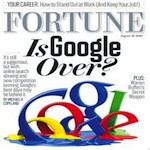For years, Google has dominated the search engine market, however, in recent times, Bing has significantly increased it exposure and having respectable results in the Bing search engine can lead to a large boost in traffic. Most SEO Experts and gurus advise that a client need both organic Google and Bing results to survive. Nonetheless, keep in mind that a following these steps won’t automatically make your website rank well on either Bing or Google. As with everything that has competition, it will take time and hard work so take this article as a starting point.
Here are some expert search engine optimization (SEO) tips to enhance your website’s Bing search results. However, most will notice that to actually implement these, it’s not necessary to be an SEO expert nor are they very different from Google SEO:
1. Keyword in Domain
Bing appears to place significantly more weight on keywords that appear in the domain name for those keyword related search terms. This doesn’t mean that buying the website pepsi.com (obviously already taken, but a great example nonetheless) will automatically make you the number 1 result for the search term “pepsi,” however, it will significantly increase your chances of being on the first page.
2. If you can’t purchase the domain with keywords, make sure they’re in the URL
The example of pepsi.com that we used above leads to the realization that many great domain names are already taken. However, you can combat this hurdle by putting the keywords in your URL. As you can see, we do not own the domain Bing Expert but rank well for it. This is due in part to our URL: http://www.empiremedia.com/expert-bing-seo-advice/.
3. Bing Webmaster Tools and Microsoft adCenter
Microsoft has presented itself as an online advertising must, but the adCenter can help with SEO, too. Similar to the Google Webmaster Tools and Keyword Tool, the Microsoft adCenter and Bing Webmaster Tools can be used to find competitive keywords for a site and see site progress in results. Even though the keyword analytics is aimed at creating PPC ads, this insight can significantly aid with organic search optimization as well.
4. “Like-able” content
Facebook has become the new best friend for Bing. Together, Bing and Facebook have created new search features that will help expand both parties; with Bing users seeing socially enhanced results.
Essentially, if you log into Facebook and search for products, places or services that friends have commented on, Bing will show you when Facebook friends “Liked” results and recently it further integrating the “Like” data into the Bing search engine results. Now, recommended or “Liked” content by one of our friends may be more likely to show up in your search results and in turn, more likely to attract clicks from Bing searchers and boost overall rankings.
This relationship arguably gives Bing a major edge over Google, and marketers who prepare social content that catches “Likes” may put their brands ahead of the competition on Bing. Google is now trying to combat this epidemic with it’s social media platform “Google+.” In the same way that Facebook Likes are integrated into Bing, so is the +1 network into Google results. However, Google’s +1 is in it’s early stage and we’ve all seen how well Google is with social media (ex. <a href=”http://www.empiremedia.com/failed-google-projects/” title=”Failed Google Projects“>Google Buzz</a>), while Facebook is the king of social networking and the number 2 site in the world.
5. Invest in quality content
Marketers trying to optimize their sites for Bing should take a high-quality content approach (which will really help promote rankings across most search engines). But in reality, neither Bing nor Google has mastered the war on spam and therefore, many Black Hat SEO gurus suggest quantity for Bing as compared to quality backlinks for Google. WE DO NOT SUGGEST THIS! Spamming can hurt right away or in the future, but in the end, it doesn’t matter since it will lower search engine rankings. This is why we recommend relevant link building to relevant articles on your site that will not only better search engine rankings across the board, but also attract traffic actually looking for your product. Furthermore, content should be over 300 words per page, but try to have a picture or video as well so that you keep your visitors happy as well as the search engine bots.
6. On-Site Optimization
It’s important to have your keywords or phrases in the title, meta description and scattered throughout the body at approximately 2% density (although we don’t suggest using it more than twice per page/article). However, unlike Google that blatantly punishes for over-saturation of a certain keyword or phrase, Bing does not factor this as much. Make sure that your website is crawlable by providing a sitemap.
As stated, this advice isn’t hard to implement, however, it is only the beginning to the world of SEO. After reading articles as great as this (insert image of a self-pat-on-the-back), people tend to believe that SEO is an easy task and sadly, find out the hard way that there’s a non-discussed science. Therefore, we always recommend dealing with professionals and industry leaders from the beginning as compared to waiting until it’s too late.
Contact us today.




